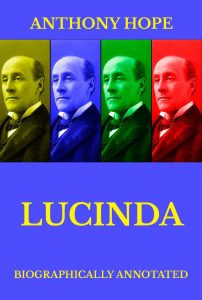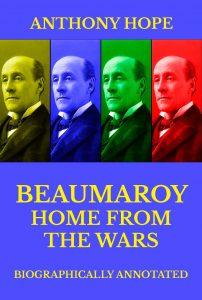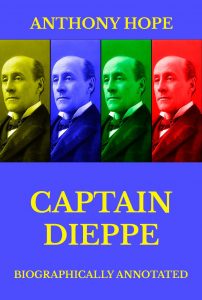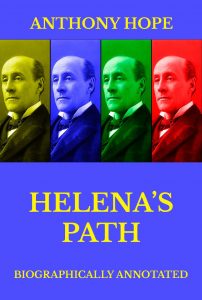-
Neueste Beiträge
Neueste Kommentare
- Jazzybee bei Geheimnisse einer Kaiserin
- Heinz Ludwig ErnstH bei Geheimnisse einer Kaiserin
- dinozeros bei Der Idiot
- Gudrun Philipp bei Der Winterkrieg – Finnland 1939/1940
- Thomas Wrage bei Der Winterkrieg – Finnland 1939/1940
Meta
Archive
- Juni 2024
- Mai 2024
- April 2024
- März 2024
- Februar 2024
- Januar 2024
- Dezember 2023
- November 2023
- Oktober 2023
- September 2023
- August 2023
- Juli 2023
- Juni 2023
- Mai 2023
- April 2023
- März 2023
- Februar 2023
- Januar 2023
- Dezember 2022
- November 2022
- Oktober 2022
- August 2022
- Juli 2022
- Juni 2022
- Mai 2022
- April 2022
- März 2022
- Februar 2022
- Januar 2022
- Dezember 2021
- November 2021
- Oktober 2021
- September 2021
- August 2021
- Juli 2021
- Juni 2021
- Mai 2021
- April 2021
- März 2021
- Februar 2021
- Januar 2021
- Dezember 2020
- November 2020
- Oktober 2020
- September 2020
- August 2020
- Juli 2020
- Juni 2020
- Mai 2020
- April 2020
- März 2020
- Februar 2020
- Januar 2020
- Dezember 2019
- November 2019
- Oktober 2019
- September 2019
- August 2019
- Juli 2019
- Juni 2019
- Mai 2019
- April 2019
- März 2019
- Februar 2019
- Januar 2019
- Dezember 2018
- November 2018
- Oktober 2018
- September 2018
- August 2018
- Juli 2018
- Juni 2018
- Mai 2018
- April 2018
- März 2018
- Februar 2018
- Januar 2018
- Dezember 2017
- November 2017
- Oktober 2017
- September 2017
- August 2017
- Juli 2017
- Juni 2017
- Mai 2017
- April 2017
- März 2017
- Januar 2017
- Dezember 2016
- November 2016
- Oktober 2016
- Juni 2016
- November 2011
Kategorien
- American History (English) (291)
- Alaska (1)
- American Revolution (3)
- California (27)
- Civil War (21)
- Connecticut (6)
- District of Columbia (9)
- Florida (4)
- Georgia (4)
- Historic Highways (12)
- Historical Travelogues (16)
- Illinois (9)
- Indiana (2)
- Maryland (6)
- Massachusetts (24)
- Michigan (7)
- Minnesota (1)
- Missouri (4)
- New Jersey (3)
- New York (25)
- North Carolina (3)
- Ohio (4)
- Oregon (1)
- Pennsylvania (9)
- Tennessee (1)
- Texas (16)
- The Presidents (49)
- Utah (2)
- Washington (3)
- Wisconsin (5)
- Ancient History (English) (13)
- Antike Philosophie (3)
- Astrologie (1)
- Biographies (English) (48)
- Chinesische Philosophie (3)
- Christmas (English) (18)
- Classics of Fiction (English) (663)
- Alcott, Louisa May (29)
- Austen, Jane (11)
- Barrie, James M. (14)
- Baum, L. Frank (17)
- Carroll, Lewis (7)
- Cather, Willa (4)
- Chesterton, G. K. (37)
- Chopin, Kate (4)
- Coleridge, Samuel Taylor (11)
- Collins, Wilkie (39)
- Dickens, Charles (20)
- Doyle, Arthur Conan (46)
- Eliot, George (14)
- Frederic, Harold (12)
- Frost, Robert (1)
- Gibran, Khalil (0)
- Goethe, Johann Wolfgang von (2)
- Hardy, Thomas (11)
- Hawthorne, Nathaniel (3)
- Hedin, Sven (6)
- Hodgson-Burnett, Frances (25)
- Hoffmann, E.T.A. (1)
- Hope, Anthony (31)
- Howells, William Dean (72)
- Hugo, Victor (25)
- Irving, Washington (12)
- Kneipp, Sebastian (2)
- Lang, Andrew (31)
- Longfellow, Henry Wadsworth (1)
- Melville, Herman (9)
- Montgomery, Lucy Maud (15)
- Scott, Sir Walter (8)
- Shelley, Mary Wollstonecraft (8)
- Stevenson, Robert Louis (34)
- Stories For Sleepless Nights (1)
- Stratton-Porter, Gene (16)
- Thoreau, Henry David (1)
- Toomer, Jean (2)
- Twain, Mark (33)
- Verne, Jules (6)
- Webster, Jean (8)
- Wells, H.G. (9)
- Wharton, Edith (1)
- Wollstonecraft, Mary (7)
- Culture, Sports & Entertainment (English) (1)
- Deutscher Novellenschatz (24)
- Deutschland unter Kaiser Wilhelm II. (8)
- Die Geschichte des Eisens (10)
- Die Schriften der Kirchenväter (104)
- Die verlorenen Bücher der Bibel (30)
- Elisabeth von Österreich – Die Kollektion (4)
- European History (English) (18)
- Fairy Tales and Mythology (English) (3)
- Kinderbücher (15)
- Krimis aus der goldenen Zeit (10)
- Lateinische Klassiker (10)
- Ammianus Marcellinus (1)
- Apuleius (2)
- Boethius (1)
- Catullus (1)
- Celsus (1)
- Cicero (2)
- Julius Caesar (2)
- Märchen & Sagen (13)
- Mathematik Zahlentrainer (38)
- Meisterwerke der Literatur (1.050)
- A (29)
- Achleitner-Arthur (0)
- Adler, Emma (1)
- Adlersfeld-Eufemia von (1)
- Aho-Juhani (0)
- Alcott, Louisa May (4)
- Alexis-Willibald (0)
- Alighieri-Dante (2)
- Allen-James (1)
- Altenberg-Peter (3)
- Andersen-Hans Christian (1)
- Andrejew-Leonid (1)
- Anzengruber-Ludwig (6)
- Arbiter-Gaius Petronius (1)
- Aretz-Gertrude (1)
- Aristophanes (1)
- Aristoteles (1)
- Arndt-Ernst Moritz (0)
- Arnim – Achim von (1)
- Arnim-Bettina von (0)
- Äsop (1)
- Auerbach-Berthold (1)
- Augustinus-Aurelius (1)
- Aurel-Marc (1)
- B (70)
- Bacon, Francis (1)
- Bahr-Hermann (10)
- Ball, Hugo (1)
- Balzac-Honoré de (4)
- Barbusse-Henri (1)
- Bassewitz-Gerd von (1)
- Baudelaire-Charles (1)
- Bauer, Karoline (1)
- Bauer-Otto (0)
- Baum-L. Frank (2)
- Bebel-August (0)
- Bechstein, Ludwig (1)
- Beck-Jürgen (2)
- Beecher-Stowe-Harriet (1)
- Benjamin-Walter (0)
- Berend-Alice (0)
- Bernhardi-Sophie (0)
- Bettauer-Hugo (2)
- Birt – Theodor (0)
- Bismarck-Otto von (1)
- Bjornson-Bjornstjerne (0)
- Blei-Franz (0)
- Bleibtreu-Karl (4)
- Boccaccio-Giovanni (1)
- Böhlau-Helene (0)
- Bote-Hermann (1)
- Boy Ed, Ida (8)
- Boyer-Jean Baptiste (1)
- Braun-Lily (0)
- Brentano-Clemens (8)
- Bronté-Charlotte (1)
- Bruun-Laurids (0)
- Büchner-Georg (2)
- Büchner-Luise (1)
- Bulwer-Lytton-Edward (1)
- Bunyan, John (3)
- Burckhardt-Jacob (0)
- Bürger-Gottfried August (1)
- Burnett-Frances Hodgson (1)
- Busch-Wilhelm (7)
- Byron-George (0)
- C (32)
- Carroll-Lewis (1)
- Carus-Carl Gustav (0)
- Chaucer-Geoffrey (1)
- Chesterton-Gilbert Keith (1)
- Choderlos-P.A. de Laclos (1)
- Christ-Lena (5)
- Cicero (2)
- Claudius-Matthias (1)
- Clausewitz-Carl von (1)
- Colerus-Egmont (3)
- Collins-Wilkie (2)
- Collodi-Carlo (1)
- Connell-Richard (1)
- Conrad-Joseph (3)
- Conrad-Michael Georg (1)
- Conwell-Russell (1)
- Cooper-James-Fenimore (5)
- Corvin-Otto von (1)
- Couperus-Louis (0)
- Crusenstolpe-Magnus Jacob (1)
- D (73)
- Dahn-Felix (0)
- Darwin-Charles (1)
- Daudet-Alphonse (10)
- Daumer-Georg Friedrich (1)
- Dauthendey-Max (8)
- Defoe-Daniel (3)
- Delbrück-Hans (0)
- Dickens-Charles (13)
- Diderot-Denis (3)
- Dohm-Hedwig (4)
- Dostojewski-Fjodor (8)
- Doyle-Arthur-Conan (5)
- Drews-Arthur (1)
- Droste-Hülshoff-Annette (2)
- Droysen-Johann Gustav (1)
- Dumas-Alexandre (9)
- Duncker-Dora (4)
- E (43)
- Ebers-Georg (4)
- Ebner-Eschenbach-Marie (0)
- Eckstein-Ernst (1)
- Eichendorff-Joseph von (2)
- Elvestad-Sven (8)
- Emmerich-Ferdinand (7)
- Engel-Georg (4)
- Engels-Friedrich (1)
- Ernst-Otto (0)
- Ernst-Paul (0)
- Ertl-Emil (0)
- Eschenbach-Wolfram von (1)
- Eschstruth-Nataly von (9)
- Essig-Hermann (3)
- Eucken-Rudolf (0)
- Eulenburg-Philipp zu (1)
- Euripides (1)
- Eyth-Max (1)
- F (73)
- Faber-Kurt (5)
- Falke-Gustav (6)
- Federer-Heinrich (4)
- Felder-Franz Michael (1)
- Feuerbach-Ludwig (1)
- Fichte-Johann Gottlieb (0)
- Fielding-Henry (2)
- Flammarion-Camille (1)
- Flaubert-Gustave (1)
- Fletcher-Joseph Smith (5)
- Fock-Gorch (2)
- Fontane-Theodor (15)
- Forster-Georg (1)
- Fouqué-Friedrich-de-Motte (0)
- Frankau, Julia (1)
- Franklin-Benjamin (1)
- Franzos-Karl Emil (8)
- Frapan, Ilse (2)
- Freud-Sigmund (5)
- Freytag-Gustav (7)
- Friedell-Egon (4)
- G (72)
- Gaboriau-Emile (1)
- Galen-Philipp (1)
- Ganghofer-Ludwig (15)
- Garschin-Wsewolod (1)
- Gellert-Christian Fürch. (1)
- George-Stefan (1)
- Gerhardt-Paul (1)
- Gerstäcker-Friedrich (3)
- Gibbon-Edward (1)
- Gilman-Charlotte-Perkins (1)
- Gjellerup-Karl Adolph (5)
- Glauser-Friedrich (7)
- Goethe-Johann W. von (6)
- Gogol-Nikolai (3)
- Goldoni-Carlo (1)
- Gontscharow-Iwan (1)
- Gorki-Maxim (4)
- Gotthelf-Jeremias (6)
- Gregorovius-Ferdinand (1)
- Grimmelshausen-Hans Jakob (1)
- Günther-Agnes (1)
- Gutzkow-Karl (10)
- H (66)
- Hahn-Hahn-Ida Gräfin (5)
- Hansjakob-Heinrich (3)
- Hasek-Jaroslav (1)
- Hauff-Wilhelm (5)
- Hebel-Johann Peter (2)
- Hedin, Sven (2)
- Heer-Jakob Christoph (7)
- Hegel-Georg Wilhelm (4)
- Heiberg-Hermann (5)
- Heine-Heinrich (2)
- Herder-Johann Gottfried (1)
- Herodot (1)
- Hillern-Wilhelmine von (1)
- Hindenburg-Paul von (1)
- Hoffmann-Andreas Gottlieb (1)
- Hoffmann-E.T.A. (7)
- Hofmannsthal-Hugo von (7)
- Hölderlin-Friedrich (2)
- Holub-Emil (1)
- Homer (2)
- Horvath-Ödön von (1)
- Hugo-Victor (2)
- Huysmans-Joris Karl (1)
- I (10)
- Ibsen-Henrik (7)
- Irving-Washington (3)
- J (6)
- Jensen-Wilhelm (6)
- K (61)
- Kafka-Franz (3)
- Kant-Immanuel (2)
- Katharina-die-Große (1)
- Keats-John (1)
- Keller-Gottfried (4)
- Keller-Paul (7)
- Kempen-Thomas von (1)
- Keyserling-Eduard von (6)
- Kierkegaard-Sören (3)
- Kipling-Rudyard (4)
- Klabund (1)
- Kleist-Heinrich von (2)
- Klingemann-August (1)
- Klinger-Friedrich Maximilian (1)
- Klopstock-Friedrich Gottlieb (1)
- Kneipp, Sebastian (2)
- Knigge-Adolf Freiherr von (1)
- Koch-Rosalie (1)
- Korolenko-Wladimir (1)
- Kotzebue, August von (1)
- Kraft-Robert (5)
- Kraus-Karl (4)
- Kropotkin, Pjotr (0)
- Kropotkin-Pjotr (2)
- Kugler-Franz (1)
- Kurz-Hermann (3)
- Kyber-Manfred (2)
- L (45)
- La Roche-Sophie von (1)
- Lafontaine-Jean de (1)
- Lagerlöf-Selma (4)
- Landsberger-Artur (7)
- Laßwitz-Kurd (1)
- Laube-Heinrich (6)
- Lermontow-Michail (1)
- Lessing-Gotthold Ephraim (3)
- Lichtenberg-Georg Christoph (1)
- Lienhard-Friedrich (4)
- Lindau-Paul (1)
- Lofting-Hugh (2)
- Löns-Hermann (2)
- Loti-Pierre (2)
- Lovecraft, H. P. (3)
- Ludwig-Otto (3)
- Luther-Martin (3)
- M (105)
- Macaulay-Thomas B. (2)
- MacDonald-George (1)
- Machiavelli-Niccolo (2)
- Mackay-John Henry (6)
- Mann, Heinrich (10)
- Manzoni-Alessandro (1)
- Marlitt-Eugenie (9)
- Marx-Karl (2)
- Maupassant-Guy de (1)
- Mauthner-Fritz (0)
- May-Karl (37)
- Meding-Oskar (9)
- Mereschkowski-Dmitri (1)
- Meyer-Eduard (0)
- Meyrink-Gustav (1)
- Milton-John (1)
- Molière (4)
- Mommsen-Theodor (6)
- Montaigne-Michel de (1)
- Morgenstern-Christian (1)
- Mörike-Eduard (3)
- Moritz-Karl Philipp (1)
- Morus-Thomas (1)
- Moszkowski-Alexander (2)
- Mühsam-Erich (1)
- Multatuli (1)
- Muther-Richard (1)
- N (13)
- Nestroy-Johann (2)
- Niese-Charlotte (4)
- Nietzsche-Friedrich (5)
- Northup-Solomon (1)
- Novalis (1)
- O (14)
- Ohnet-Georges (9)
- Ossietzky-Carl von (0)
- Otto-Louise (4)
- Ovid (1)
- P (21)
- Panizza-Oskar (3)
- Petrarca-Francesco (1)
- Pfalz-Liselotte von der (1)
- Philon (0)
- Platon (5)
- Poe-Edgar Allan (1)
- Potapenko-Ignatji (1)
- Prévost-Marcel (5)
- Puschkin-Alexander (2)
- Pyle, Ernie (2)
- R (41)
- Rabelais-Francois (1)
- Rellstab-Ludwig (2)
- Retcliffe-Sir John (2)
- Reymont-Wladyslaw (1)
- Rhoden-Emmy von (1)
- Richthofen-Manfred von (1)
- Rilke-Rainer Maria (2)
- Ringelnatz-Joachim (2)
- Rohlfs-Gerhard (1)
- Rolfes, Eugen (1)
- Rosegger-Peter (11)
- Rosen-Erwin (1)
- Rostand-Edmond (2)
- Roth-Joseph (8)
- Rousseau-Jean Jacques (3)
- Rückert-Friedrich (2)
- S (102)
- Sade-Marquis de (1)
- Saint Exupéry, Antoine de (1)
- Salgari-Emilio (1)
- Sapper-Agnes (1)
- Scheerbart-Paul (10)
- Schickele-René (4)
- Schiller-Friedrich (11)
- Schlegel-Friedrich (1)
- Schlenther-Paul (1)
- Schnitzler-Arthur (2)
- Schopenhauer-Arthur (3)
- Schreckenbach-Paul (2)
- Schröder-Devrient-Wilhelmine (1)
- Schubin, Ossip (1)
- Schurig-Arthur (1)
- Schwab-Gustav (0)
- Scott-Sir Walter (1)
- Semjonow-Sergej (1)
- Seneca-Lucius Annaeus (0)
- Seume-Johann Gottfried (1)
- Shakespeare-William (16)
- Shelley-Mary Wollstonecraft (1)
- Sienkiewicz-Henryk (1)
- Silesius-Angelus (1)
- Simmel-Georg (0)
- Simrock-Karl (2)
- Sonnleitner-Alois Theodor (3)
- Sophokles (5)
- Spengler-Oswald (2)
- Spindler-Karl (3)
- Spinoza-Baruch de (2)
- Sprenger-Jakob (1)
- Spyri-Johanna (0)
- Stael-Germaine de (1)
- Steiner-Rudolf (2)
- Stendhal (3)
- Sterne-Laurence (1)
- Stevenson-Robert Louis (1)
- Stifter-Adalbert (1)
- Stoker-Bram (1)
- Storm-Theodor (5)
- Straßburg-Gottfried von (1)
- Stucken-Eduard (2)
- Suttner-Bertha von (2)
- Swift-Jonathan (1)
- T (38)
- Tagore-Rabindranath (1)
- Thoma-Ludwig (5)
- Thoreau-Henry David (1)
- Tieck-Ludwig (1)
- Tolstoi-Leo (11)
- Treller-Franz (1)
- Tschechow-Anton (6)
- Tucholsky-Kurt (3)
- Turgenew-Ivan (2)
- Twain-Mark (7)
- U (10)
- Ungar-Hermann (0)
- Ury-Else (10)
- V (28)
- Verne-Jules (26)
- Voltaire (1)
- W (63)
- Wagner-Richard (1)
- Wallace-Edgar (46)
- Wallace-Lewis (1)
- Walpole-Horace (1)
- Wassermann-Jakob (2)
- Weber-Max (0)
- Wells-H. G. (2)
- Whitman-Walt (1)
- Wilde-Oscar (5)
- Wolzogen-Caroline von (1)
- Wörishöffer-Sophie (1)
- Wundt-Wilhelm (1)
- Wyss-Johann David (1)
- Y (1)
- Young, Filson (1)
- Z (30)
- Zola-Emile (18)
- Zweig-Stefan (11)
- A (29)
- Middle East History (English) (20)
- Mind Power (English) (30)
- Opern der Welt (11)
- Philosophie (4)
- Philosophy & Politics (English) (151)
- 17th Century (1)
- 18th Century (49)
- 19th Century (61)
- 20th Century (2)
- Ancient (24)
- Middle Ages (2)
- Renaissance (14)
- Poetik (4)
- Recht (4)
- Religionen der Welt (92)
- Calvin, Johannes (17)
- Sachbücher (30)
- Sam Caine (Krimiserie) (5)
- Schlachten des II. Weltkriegs (45)
- Science (English) (1)
- 19th Century (1)
- Sport (0)
- The Sacred Books (English) (298)
- Astrology (2)
- Biblical Reference (3)
- Biblical Studies & Commentaries (61)
- Buddhism (27)
- Children's Great Bible Texts (8)
- Christology (18)
- Church History (63)
- Divination (4)
- Ethnic & Tribal (6)
- Freemasonry (18)
- Gnosticism (3)
- Judaism (3)
- Life of Jesus (2)
- Mariology (4)
- Mysticism (33)
- Occultism (22)
- Prayers & Sermons (3)
- Protestant (1)
- Spirituality (16)
- The Sacred Writings (33)
- Theosophy (3)
- Yoga (13)
- Weihnachten (11)
- Weltgeschichte (14)
- 18. Jahrhundert (1)
- 19. Jahrhundert (9)
- Altertum (0)
- I. Weltkrieg (3)
- II. Weltkrieg (1)
- World History (English) (17)
- American History (English) (291)
Archiv der Kategorie: Hope, Anthony
Dolly Dialogues
Dolly Dialogues – Anthony Hope
The Secret of the Tower, by Anthony Hope, was received by the author’s many admirers with enthusiastic pleasure, for it was many a moon since he has written a novel, not indeed since the war. The present tale is a mystery story with all the thrilling and hair-raising situations that the most exacting lover of baffling, romantic mystery novels could desire. The scene is laid in England after the great war and much mystery surrounds the occupants of the “Tower,” an old man, his companion and his servant. Much speculation as to their mode of living and the secretiveness of their weekly trips to London with a brown leather bag, which always accompanies them on … Read more.../Mehr lesen ...
Veröffentlicht unter Classics of Fiction (English), Hope, Anthony
Schreib einen Kommentar
The Secret of the Tower
The Secret of the Tower – Anthony Hope
The Secret of the Tower, by Anthony Hope, was received by the author’s many admirers with enthusiastic pleasure, for it was many a moon since he has written a novel, not indeed since the war. The present tale is a mystery story with all the thrilling and hair-raising situations that the most exacting lover of baffling, romantic mystery novels could desire. The scene is laid in England after the great war and much mystery surrounds the occupants of the “Tower,” an old man, his companion and his servant. Much speculation as to their mode of living and the secretiveness of their weekly trips to London with a brown leather bag, which always … Read more.../Mehr lesen ...
Veröffentlicht unter Classics of Fiction (English), Hope, Anthony
Schreib einen Kommentar
Lucinda
Lucinda – Anthony Hope
Everything is ready for the fashionable London wedding of the heroine and the son of a famous old diplomat. But the bride has simply disappeared. Circumstantial evidence points to the fact that an Italian is connected with the girl’s disappearance. The outbreak of war just at this time postpones the chase for years.
This novel by the author of “The Prisoner of Zenda” and “Dolly Dialogues” is much more closely related to reality in life and character than most other books. One feels that Mr. Hope is now writing to please his own ideals of the art of fiction rather than to amuse the crowd.
Format: Paperback.
Lucinda.
ISBN: 9783849694630
Available at amazon.com and other … Read more.../Mehr lesen ...
Veröffentlicht unter Classics of Fiction (English), Hope, Anthony
Schreib einen Kommentar
Beaumaroy Home from the Wars
Beaumaroy Home from the Wars – Anthony Hope
The scene of this story of mystery and romance is laid in the little town of Inkston, near London, shortly after the world war. Interest centers in three characters: the “puzzling unaccounted-for Mr Beaumaroy,” recently of the British army overseas, now companion to an eccentric old man; the old man himself, Aloyslus William Saffron, lonely and crazed by the war, who lives in Tower cottage; and Dr Mary Arkroyd, who attends Mr Saffron in his last illness and who changes her mind about Hector Beaumaroy.
Format: Paperback.
Beaumaroy Home from the Wars.
ISBN: 9783849694623
Available at amazon.com and other venues.
Biography of Anthony Hope (from Wikipedia):… Read more.../Mehr lesen ...
Veröffentlicht unter Classics of Fiction (English), Hope, Anthony
Schreib einen Kommentar
Captain Dieppe
Captain Dieppe – Anthony Hope
This new story is in the author’s most finished and delicate style. The gallant Captain is a French soldier of fortune, and the surprising adventures into which he is projected, by his choice of a night’s lodging in the Castle of Fieramondi, form the basis of a characteristically ingenious and interesting tale.
Format: Paperback.
Captain Dieppe.
ISBN: 9783849694616
Available at amazon.com and other venues.
Biography of Anthony Hope (from Wikipedia):
Hope was educated at St John’s School, Leatherhead, Marlborough College and Balliol College, Oxford. Hope trained as a lawyer and barrister, being called to the Bar by the Middle Temple in 1887. He served his pupillage under the future Liberal Prime Minister … Read more.../Mehr lesen ...
Veröffentlicht unter Classics of Fiction (English), Hope, Anthony
Schreib einen Kommentar
A Young Man’s Year
A Young Man’s Year – Anthony Hope
Mr. Anthony Hope offers from time to time a welcome relief from the special brand of seriousness that has come to be the hall-mark of the school of British novelists. Not that he fails to take himself seriously; on the contrary, few writers in England show a greater contrast between their earlier and their later work than the author of The Prisoner of Zenda and of the A Young Man’s Year. From the rainbow air-castles of sheer romance to the practical problem of a young man’s first start in the working world is surely a broad enough step to satisfy any demand that present-day fiction shall be serious. But the big difference between … Read more.../Mehr lesen ...
Veröffentlicht unter Classics of Fiction (English), Hope, Anthony
Schreib einen Kommentar
Mrs Maxon Protests
Mrs Maxon Protests – Anthony Hope
In “Mrs. Maxon Protests” Hope has presented with his usual brilliancy a study of the false position incurred by a thoroughly good woman when she defies fundamental conventionalities. Mrs. Maxon’s marriage is a failure, so is her attempt to find satisfaction outside the marriage tie. And, as she exclaims, “If both orthodoxy and unorthodoxy go wrong, what is a poor human woman to do?” Mr. Hawkins’ answer to this provides an interesting examination of the complexities of the divorce and separation question, and although he attempts no definite solution, his discussion exploits many suggestive theories of social philosophy. He touches a fundamental factor for solution when one of his characters remarks: “That’s to some … Read more.../Mehr lesen ...
Veröffentlicht unter Classics of Fiction (English), Hope, Anthony
Schreib einen Kommentar
Second String
Second String – Anthony Hope
Second String, by Anthony Hope,brings to mind a new tendency in British fiction which has quite been creeping in during the last years of the 19th century; namely, the tendency to concern itself more and more with the social life of middle class people rather than the upper circles. Second String deals with the extremely mixed society of a small English town, in which the hero, Andy Hayes, upon returning home after some years in the Canadian lumber district, finds it somewhat embarrassing to steer successfully between the distinctly “high-life” people on his father’s side of the house and Jack Rock, the village butcher, with whom he is connected through his mother’s second marriage. There … Read more.../Mehr lesen ...
Veröffentlicht unter Classics of Fiction (English), Hope, Anthony
Schreib einen Kommentar
The Great Miss Driver
The Great Miss Driver – Anthony Hope
Although among his more recent writings, the author of The Dolly Dialogues has done some rather serious and careful work, there is no exaggeration in saying that in literarv technique and human interest and the various other qualities that go to make good fiction The Great Miss Driver is easily the biggest, best rounded, and altogether worthiest story he has ever written, and yet, the first thing you are apt to think of is that the germ idea of the story goes straight back to the Dolly Dialogues; that in a superficial way, yes and perhaps in a deeper way, too, there is a certain rather absurd similarity between them; just as though … Read more.../Mehr lesen ...
Veröffentlicht unter Classics of Fiction (English), Hope, Anthony
Schreib einen Kommentar
Helena’s Path
Helena’s Path – Anthony Hope
For clever dialogue and spirited situations Anthony Hope is eminently satisfactory. “Helena’s Path” contains both these characteristics, and much beside; a keen appreciation of humorous values and a delightful emotional restraint. Helena’s path is the bone of contention between Helena and the English earl whose estate joins hers. It is a sparkling comedy from cover to cover. Helena’s beauty and the earl’s wit make a good combination when it comes to open war, as it does.
Format: Paperback.
Helena’s Path.
ISBN: 9783849694845
Available at amazon.com and other venues.
Biography of Anthony Hope (from Wikipedia):
Hope was educated at St John’s School, Leatherhead, Marlborough College and Balliol College, Oxford. Hope trained as a … Read more.../Mehr lesen ...
Veröffentlicht unter Classics of Fiction (English), Hope, Anthony
Schreib einen Kommentar




